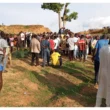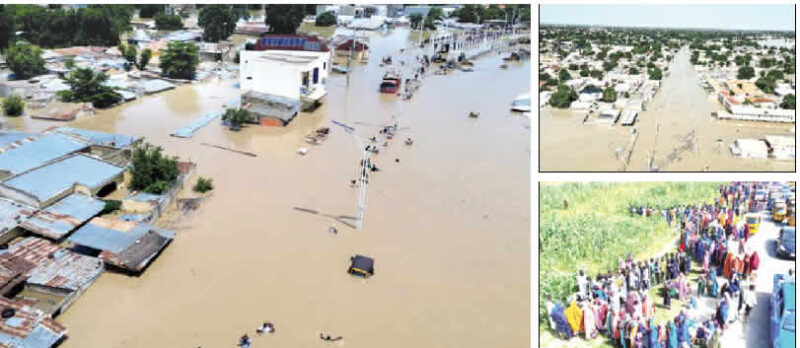Governor Babagana Zulum has formed a committee to manage the distribution of relief funds and essential items to affected victims. The flood, which displaced over 400,000 people and claimed several lives, is regarded as the worst the state has seen in three decades.
The committee, announced by the Secretary to the State Government, Bukar Tijjani, on Sunday, is composed of representatives from various agencies, including the Economic and Financial Crimes Commission (EFCC), the Independent Corrupt Practices and Other Related Offences Commission (ICPC), and the Department of State Services (DSS). These bodies were included to ensure that the relief efforts are carried out transparently and effectively.
The head of the committee is Baba Gujubawu, the Special Adviser on Monitoring and Evaluation, with Professor Ibrahim Umara from the University of Maiduguri serving as the co-chairman. The committee also includes representatives from Civil Society Organisations (CSOs), the Nigeria Union of Journalists (NUJ), Jama’atul Nasril Islam (JNI), the Christian Association of Nigeria (CAN), as well as development and humanitarian partners. His Royal Highness, the Shehu of Borno, is also part of the committee, ensuring a wide representation from the local community.
Governor Zulum, in his message to the committee members, stressed the importance of their role and urged them to act with dedication, integrity, and transparency. “The work of this committee is critical for the affected communities, and it is essential that relief funds and materials are properly managed,” the governor stated.
In addition to the state’s efforts, international donors have also stepped in to support the flood recovery process. The International Organisation for Migration (IOM), using $3 million from the United States Agency for International Development (USAID), is among the key contributors providing aid to flood victims across Borno and other parts of the country. The United States government has also increased its humanitarian assistance, providing life-saving relief for thousands of residents in Maiduguri and surrounding areas.
The flooding, caused by the overflow of the Alau Dam following heavy rains, has led to widespread destruction of homes, businesses, and farmlands. According to the National Emergency Management Agency (NEMA) and the United Nations Human Rights Refugee Council, this is the most severe flooding the town has experienced in 30 years. Many residents have been forced to leave their homes, while emergency responders continue to work on relocating displaced families and providing them with temporary shelter.










